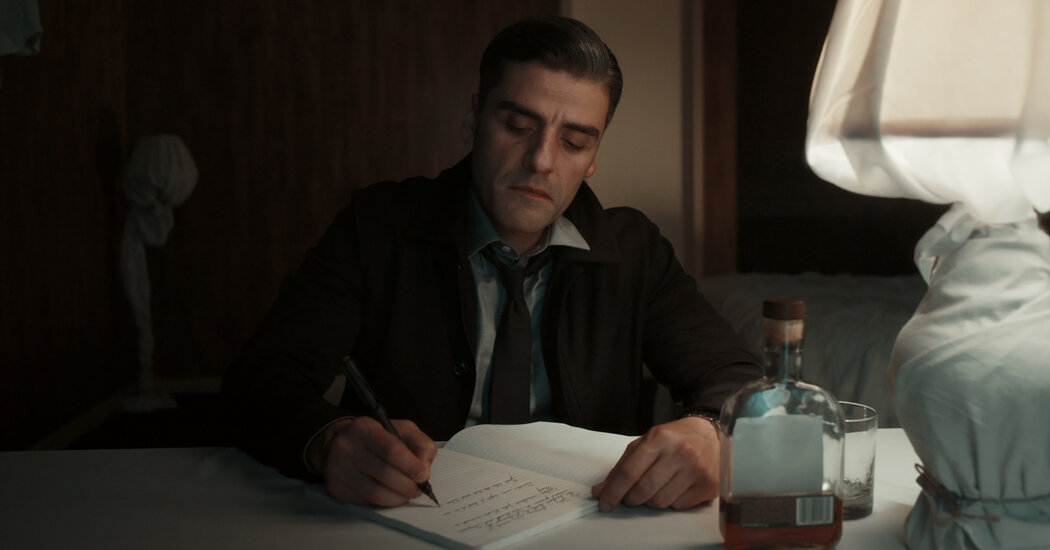
A man sits writing in a room, alone in his head, alone in the world. We hear his words, his thoughts, in a voice-over that’s a portal to his reality. It’s an intimate, unmodulated voice, and what he says is often unremarkable to the point of banality. Yet something troubles the man which, in turn, troubles you. He may be a good man gone wrong or a bad one gone right; the only thing certain is that he jumped out of the head of Paul Schrader.
The solitary man in a room is Schrader’s most indelible authorial signature, a defining image and idea in one. That figure most famously appears in his script for “Taxi Driver,” in which Travis Bickle, the cabby turned killer, pours out his rancid and bland thoughts; and he is the fulcrum of movies that Schrader has directed, notably “Light Sleeper” and “First Reformed.” The solitary man returns in “The Card Counter,” a haunting, moving story of spirit and flesh, sin and redemption, love and death about another lonely soul, William Tell, who, with pen to paper, grapples with his present and his unspeakable past.
A soldier turned professional card player, Tell — Oscar Isaac, a seductive force field — learned to count cards in prison, a talent he uses as he travels from casino to casino. Now, in anonymous, interchangeable gambling houses, he sits at blackjack and poker tables with strangers and sometimes other pros, counting, betting and often winning. He’s a disciplined player and a discreet gambler, winning just enough to avoid unwelcome attention. “The days move along with regularity, over and over, one day indistinguishable from the next,” to quote Travis Bickle. Every so often, Tell spins a roulette wheel.
It’s so good to be in Schrader’s world (and head) when the movie is as good as “The Card Counter.” One of the most enduring veterans of New Hollywood, Schrader is best known for his collaborations with Martin Scorsese, whose name prominently embellishes this new movie’s credits. At the same time, Schrader has produced his own distinctive directorial corpus that’s informed by classical Hollywood and by classic international art cinema, traditions he can put into productive tension like few others. It’s always interesting to see what he’s up to, even when he doesn’t have a firm hand on his material, hasn’t found its perfect (or near-enough) shape and style — which he’s done here.



